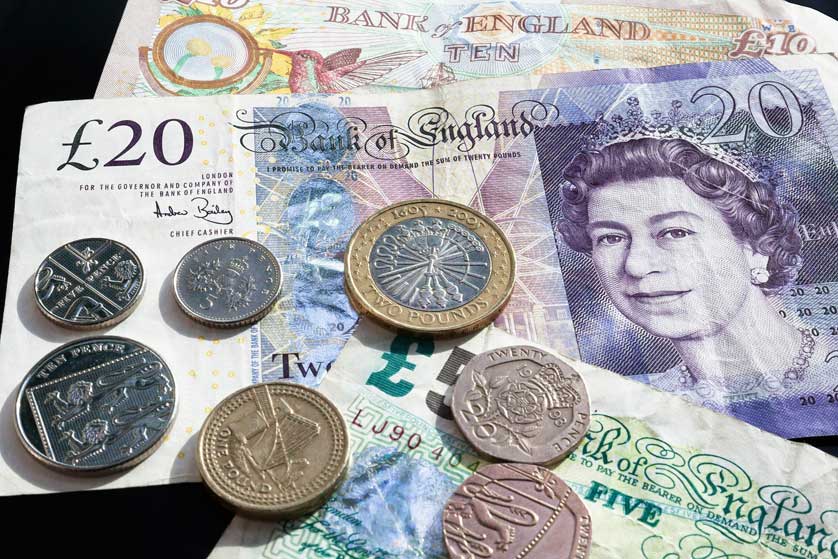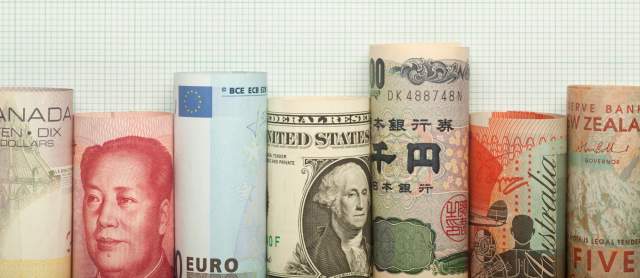20 Recommended Facts For Picking Currency Converter Sites
Top 10 Tips On Currency Conversion Fees And RatesIn an increasingly globalized world, currency conversion fees play crucial roles when it comes to financial transactions no matter if you're on the road in business or managing the investment of foreign currency. The fees can be subject to wide variations depending on factors such as the provider, exchange method and the currencies. Understanding how to navigate these charges can assist you in saving money and make more informed choices. The top ten tips for currency exchange fees will aid business owners, travelers as well as investors.
1. Learn about the different types of currency conversion fees
Costs for currency conversion may be in a variety of kinds. There are transaction charges as well as exchange rate markups and service charges. The transaction fee is a set amount for every exchange. However, service costs can be calculated as a percentage. Rate marksups for exchange occur when a provider offers a lower rate than the current market rate. You can determine the most favorable solutions to meet your needs by becoming knowledgeable with these costs.
2. Compare rates from a variety of providers
- Before exchanging currency it is crucial to compare rates from multiple providers. Often, banks, currency exchange kiosks, or online platforms may have different rates and fees. You can use currency converters to compare rates in real-time and estimate the total cost, including the fees for each choice. This will aid you in determining the best price and could save you significant amounts, especially when exchanging larger sums.
3. You can find no-fee options for currency exchange
Certain financial institutions, such as banks, offer accounts with no cost currency exchanges as well as reduced costs. Fintech companies and online banks for instance, frequently offer currency conversions free of charge to account holders. You might want to consider opening an account at one of these companies especially if you are regularly dealing in foreign currencies.
4. Be aware of dynamic exchange rates (DCC) costs
If you're paying with a debit or credit card overseas, it's likely that you'll have the option to pay in your local currency by a program called Dynamic Conversion. While this might seem convenient, it often involves higher conversion fees and unfavorable exchange rates. If you want to avoid any additional charges and enjoy the most favorable exchange rates, make payments in the local currency.
5. Use credit cards with no foreign transaction charges
- When traveling, using credit cards that don't charge foreign transaction charges can help you save money. Most travel credit cards have this benefit. They allow customers to purchase in foreign countries without incurring additional costs. You should choose a card that has favorable exchange rates and corresponds to your spending routine. This will enable you to minimize costs when traveling.
6. Think about ATMs as a source of withdrawal of currency
ATMs for withdrawing cash in the local currency can often yield better exchange rates compared to kiosks for currency exchange. Be aware of fees that may be charged from your bank or the ATM operator. You can avoid the dynamic fees for currency conversion by using ATMs that are connected to your bank.
7. Plan ahead for currency conversion
Do not exchange currencies at tourist destinations or at airports. Fees are usually higher. Plan your exchange ahead to get better rates and lower costs. Explore the best alternatives for local exchange and convert small amounts prior to your trip, to be able to cover the costs of your trip. Make plans to exchange larger amounts when you arrive.
8. Track the rate of exchange trends
You can identify the best moment to convert currencies by keeping an eye out for any changes in exchange rates. You can time your currency conversions by keeping track of exchange rate trends. Utilize historical data or financial news to guide your decisions, and also benefit from favorable market conditions.
9. Incorporate hidden fees into your transactions
Beware of providers that charge hidden fees which are not immediately obvious. These could include service charges and maintenance charges for foreign currency accounts, as well as unfavorable exchange rates. Be sure to read the fine print and ask questions to ensure that you are aware of all costs with currency conversion. This diligence will help prevent any unexpected charges, and help you make better financial choices.
10. Consult financial professionals to handle large transactions
If you're planning to make large-scale purchases or handle complex currency exchanges, it can be beneficial to talk with financial experts. Experts in the field of currency are knowledgeable about the best ways to minimize the cost of conversion and maximize your transaction. This is essential, particularly for businesses or investors who are involved in international trading.
You can better navigate your way through currency exchanges if you adhere to these suggestions. Understanding the nuances that drive conversion fees can aid you in making more informed financial decisions that are aligned with personal or business goals. You can save money and improve your financial planning strategies by understanding these subtleties. Have a look at the top rated dollar tips for site advice including chf to usd, usd to pkr, exchange rate, usd to cop, currency converter, currency exchange, colombian peso to dollar, pound to dollar, us dollar to mexican peso, usd to indian rupees and more.

What Are The Most Effective Payment Methods In Terms Currency Exchange Rates?
The right payment method can be essential to managing your financial transactions. This is true regardless of whether you're travelling across the globe, running an enterprise or monitoring investment. The payment method that you select can affect costs, security, and convenience. There are a variety of payment options that have different charges, exchange rates, and acceptance levels, which can affect your overall experience and financial outcomes. Understanding the specifics of different payment methods will help you make well-informed decisions that are in line with your financial goals. The top ten suggestions to help you select and utilize payment methods efficiently to manage your finances are provided below.
1. You can select from a range of payment methods
Familiarize your self with the various payment options available, such as cash, credit/debit card mobile payments, digital wallets. Each payment method has advantages and disadvantages in terms ease of use, costs and acceptance. Cash, although universally accepted and convenient for small transactions, is less secure. Knowing the pros and cons of each one will help you choose the right one to suit your needs.
2. Take into consideration the cost of currency conversion
Take note that there could be charges for conversion of currency when using credit cards and debit cards to make international transactions. The amount of these fees can differ greatly between credit card companies and banks firms. Some cards have a foreign transaction charge, but others don't. Prior to making purchases or traveling overseas, make sure you consult your bank or credit card provider to understand their policies on the cost of currency conversion, and then choose cards that minimize these costs.
3. No Foreign Transaction Fees on Credit Cards
If you are planning to travel abroad or to make purchases in foreign currencies, opt for credit cards that do not charge foreign transaction fees. A majority of credit cards that are geared towards travel offer this advantage which allows the cardholder to make purchases overseas without incurring additional fees. This can mean significant savings, particularly for frequent travelers who could also be purchasing large amounts abroad.
4. Utilize mobile phone alternatives
- Payment options via mobile devices, including Apple Pay, Google Pay, and other digital wallets, offer a convenient way to make transactions without having cash or credit cards. These services, which often include enhanced security measures like biometric authentication or tokenization can be a fantastic option for offline and online transactions. If you want to reduce your spending, consider using mobile payment options, especially for smaller purchases.
5. Remember ATM fees when withdrawing cash
If you are traveling and require cash withdrawal from an ATM Be aware that fees may vary. Some banks charge withdrawal charges for international transactions, while others may collaborate with other local banks in order to eliminate withdrawal fees. If you're looking to save money, look into ATM networks that have lower charges. You can also make withdrawals of greater amounts in order to reduce transaction fees.
6. Make sure you have backup payment options
- Having a backup payment method is essential to avoid disruptions in case your primary method fails or is lost. Keep a backup card (credit/debit) and some cash, or an alternative for mobile payments on hand to ensure you can continue buying. This is crucial when traveling, as certain places may not accept all payment methods. If you plan ahead, you can navigate difficult situations with ease.
7. Monitor Exchange Rates to Make Better Choices
If you are purchasing items in foreign currencies, be aware of the current exchange rates. This will allow you decide whether to convert money or to use your chosen payment method. Using apps and tools that track real-time exchange rates can help you identify favorable conditions for converting currency. Use this information to determine the payment method you will select, especially if it is possible to save on conversion fees.
8. Be aware of security features
When choosing payment options, security should be a top priority. Examine the security options offered by your bank, credit card company or payment service. Find fraud protection options including transaction alerts, transaction monitoring and encryption technology. Making sure you choose secure payment options to ensure that you are safe from fraud and fraudulent transactions.
9. Review Payment Policy Guidelines for businesses
Understanding the payment policy will assist you in managing your cash flow. Check out the charges as well as features and acceptance rates of the various payment processors. Choose a payment option that is compatible with your business goals, be it cost-effective transaction fees, speedy processing times or customer convenience. A well-chosen payment method can increase the satisfaction of your customers and also streamline your business.
10. Be Educated on Investment Payment Methods
Understanding the payment method is crucial for investors. Different brokerage platforms may offer various options for funding their accounts and executing trades. Be familiar with all the associated fees and time frames. Be aware of the effect of margin accounts and leverage investment on your financial plan.
The following detailed advice to pay methods will help you navigate the many complexities of travelling, conducting business and managing your investments. Knowing the various payment options, their costs and security measures will allow you to make informed decisions about your financial situation. The right payment method can enhance the overall quality of your experience, save money, and provide assurance with your financial transactions. See the recommended euro for more examples including usd to aud, dollar to canadian dollar, convert euro to usd, usd to mexican peso, us dollar to rupees, usd to eur, chf to usd, yen to dollar, euro to dollar, doller to rupee and more.
